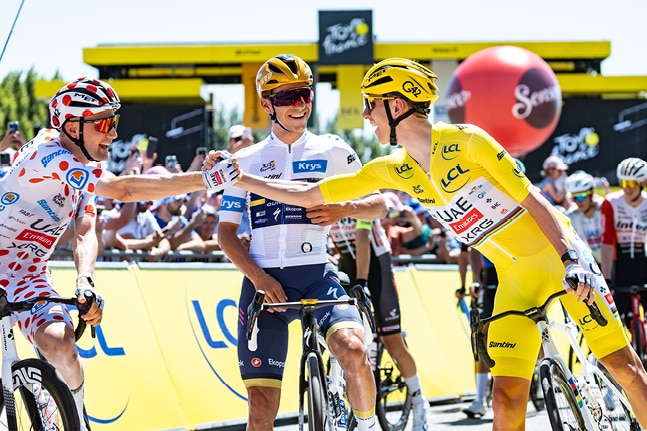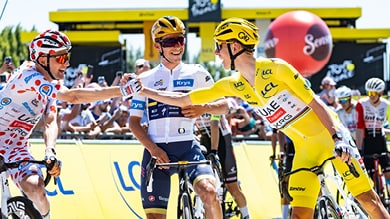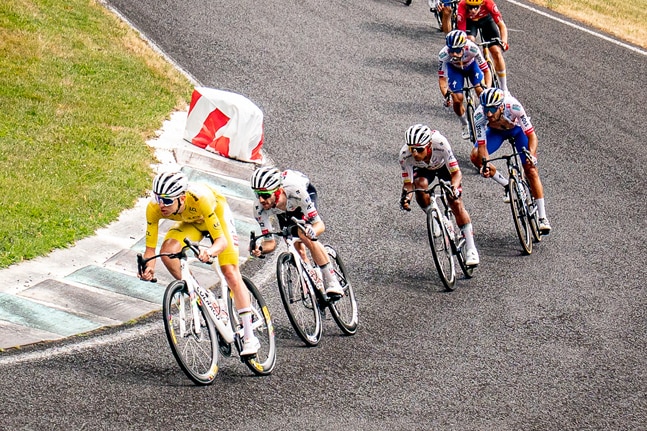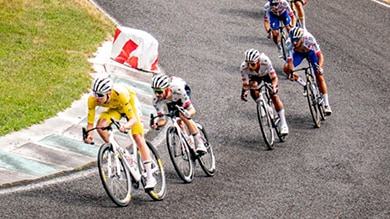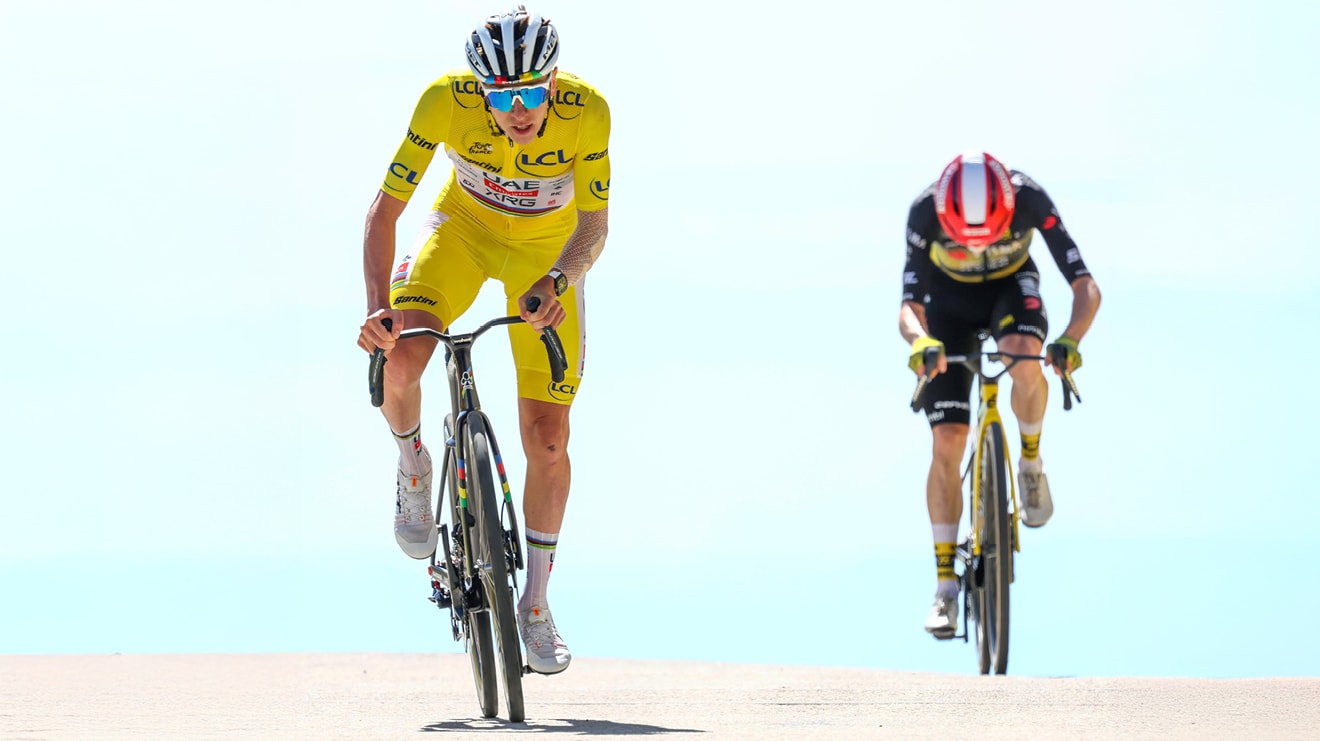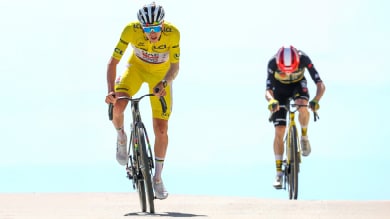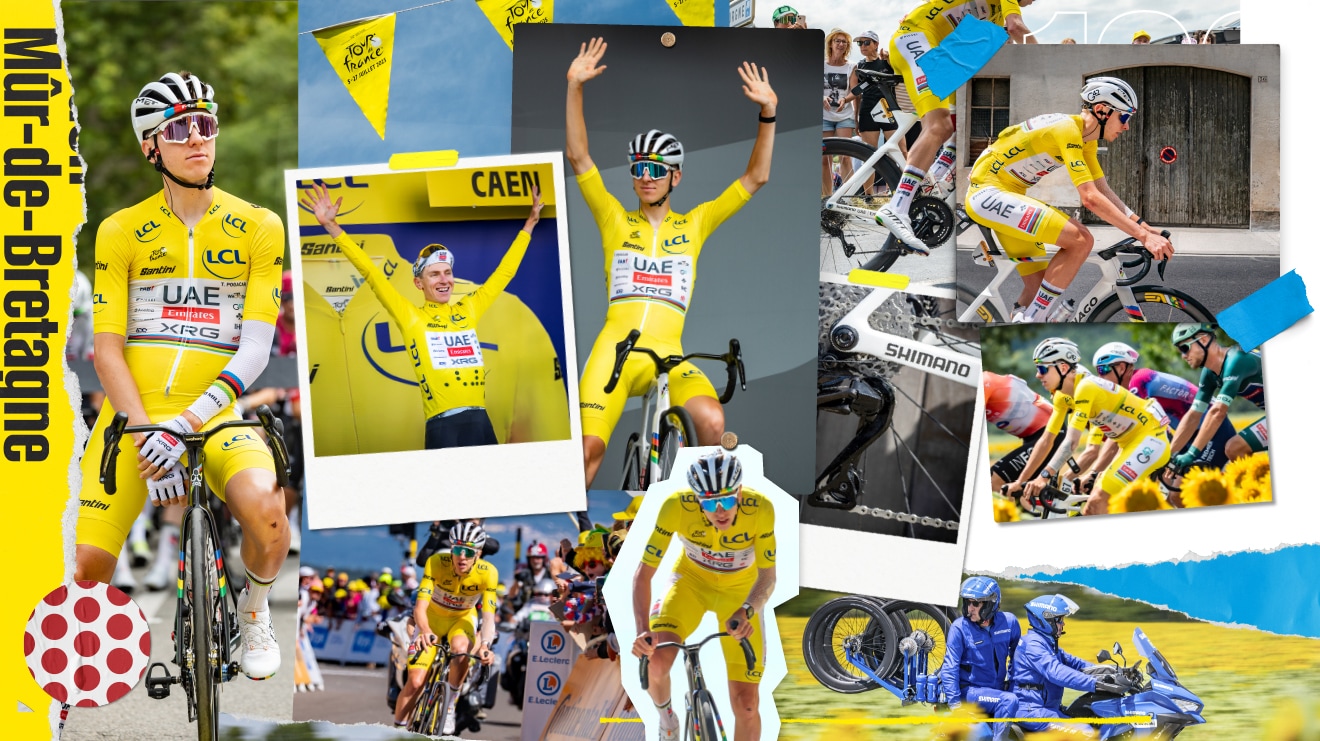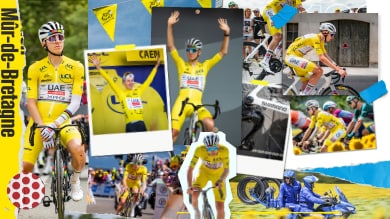SELECT LOCATION AND LANGUAGE
GLOBAL
AMERICAS
-
BELGIUM
FRANÇAIS
-
BELGIUM
NEDERLANDS
-
NETHERLANDS
NEDERLANDS
-
SWITZERLAND
DEUTSCH
-
SWITZERLAND
FRANÇAIS
-
SWITZERLAND
ITALIANO
-
AUSTRIA
DEUTSCH
-
FRANCE
FRANÇAIS
-
GERMANY
DEUTSCH
-
ITALY
ITALIANO
-
SPAIN
ESPAÑOL
-
PORTUGAL
PORTUGUÊS
-
POLAND
POLSKI
-
UNITED KINGDOM
ENGLISH
-
SWEDEN
SVENSKA
-
DENMARK
DANSK
-
NORWAY
NORSK
-
FINLAND
SUOMI
EUROPE
ASIA
OCEANIA
Make no mistake. This is Tadej Pogačar’s world. We are all just living in it. Read the story that seems to have everything. Heroes. Mountains. Italian road bikes. And a man with a deep blue helmet and a wrench dangling from his blue jumpsuit.
In this story:
Tadej Pogačar wins the Tour de France once again.
The UAE Team Emirates XRG mechanic who takes care of the victorious bikes.
A bicycle gets a waxed chain, a sprint shifter, and an epilogue.
Prologue: A Quiet Hero
Tadej Pogačar does not enter rooms. He slips into them. He doesn’t attack climbs so much as float up them, like a man who has somewhere better to be. If he is the future of cycling, the future is informal, softly spoken, and eats dessert.
In Slovenia, they have stories about heroes. Not loud ones. These are woods-and-mist heroes. Shepherd boys who turn into poets. Deer that can outrun kings. Tadej belongs to them. Not because he’s perfect, but because he’s curious and occasionally surprised by his greatness. Which, all things considered, is a charming thing to be surprised by.
Chapter I: The Bicycles
His Colnago Y1Rs and VR5s—about which much could be said, but little needs to be—are machines that work quietly until they need to unleash their awesome power. It clicked, whispered, and obeyed. It did not throw tantrums. It had a name, probably, though no one dared ask. It was tuned with the sort of care usually reserved for violins or espresso machines.
It had DURA-ACE. He used an 11-34 cassette and a sprint shifter with a discreet button for synchro-shifting at the rear. His were bicycles that did not protest when asked to do something unreasonable. They simply complied.
Behind the curtain of performance, someone had made sure it would.
Chapter II: Boštjan and the Waxed Chain
In the world of cycling, there are two types of silence: the hush of a rider slipping off the front, and the hum of a perfectly waxed chain.
Boštjan Kavčnik knows the second one well. He is Tadej’s compatriot, countryman, and mechanic—not in the general sense, but in the lived-in, hands-greased, sunburnt forearms kind of way. Together with three fellow mechanics, he starts work at 7:00 a.m. He ends at midnight. In between, he’s in the support car, preps bikes, swaps cassettes, rewaxes chains, and reads battery levels.
He uses E-TUBE to apply changes: new shifter settings, magnetic calibrations, and battery diagnostics. He studies the braking habits of heavier riders like a physicist studies drag. “More kilos, more rotors,” he says. “Rainy days eat brake pads.” The chains are waxed three days in advance—unless it rains. Then, everything starts again.
Boštjan knows that Tadej likes his equipment a certain way—just as he knows that a quick-link is never quick when you need it to be. He changes wheels every week, rotates used ones to spare bikes, and never—absolutely never—washes a chain until it’s earned it.
“This is no job. It is my passion,” he says, without irony. Which is lucky, because it is also his 17-hour-a-day responsibility.
Chapter III: The Seventeen Seconds
It happened on Stage 11. A hill, a hiccup, and then—clang.
The chain, that loyal silver ribbon, had dislodged itself. Like a house cat knocking over a vase, it had no good reason. Just a mood. For a moment, time paused. The world held its breath. Or, perhaps more accurately, we held ours at Shimano HQ.
Enter: another mechanic. Not Boštjan, but one of the blue-colored heroes of the Shimano Neutral Service fleet—Patrick Dils.
Patrick was ready. He had seventeen seconds to save the Tour. He did it in sixteen.
He did not explain himself. He didn’t need to. He fixed the chain like someone buttoning a collar. Then he gave the bike a push, like a friend sending another down a sledding hill, and Tadej was gone—sharing his signature gratitude with a thank you and a determined smile.
And that’s the thing about heroes. Sometimes, they wear bib shorts. Sometimes, they wear Shimano-blue and carry a torque wrench.
Chapter IV: 48 Hours to Victory
After the crash, our hero responded the way champions do. By winning. Decisively.
Stage 12 to Hautacam wasn’t close. He attacked early on the final climb, opened a gap, and kept going. No one followed for long. It was the kind of ride that didn’t just reclaim control—it erased any doubt that it had been lost.
Stage 13 was a time trial, and again, he didn’t hesitate. He rode fast, clean, and unflinching, putting almost a minute into his nearest rival. It was efficient. Sharp. Measured down to the last corner.
Two days. Two wins. No fuss. Just Pogačar doing what he does best—turning a bike race into something quiet and final.
Epilogue: Heroes, Those Who Never Compromise
Tadej Pogačar is not a myth. He eats cake, jokes with journalists, and gets sunburnt like everyone else. But he is something rarer: a hero who doesn’t seem to need the word.
And he is not alone. The Tour is full of heroes you rarely hear about. The mechanic on the Neutral Service motorbike with a blue helmet and fast hands. The Slovenian mechanic in the UAE Team Emirates XRG truck who never slows down. The ones who build the silence into which greatness rides.
The bicycle? It behaves, mostly. And if it doesn’t, someone will be there with a fresh chain and a calm face.
That’s how a Tour is won.
Are you ready for your legend to begin? Choose your weapon today.
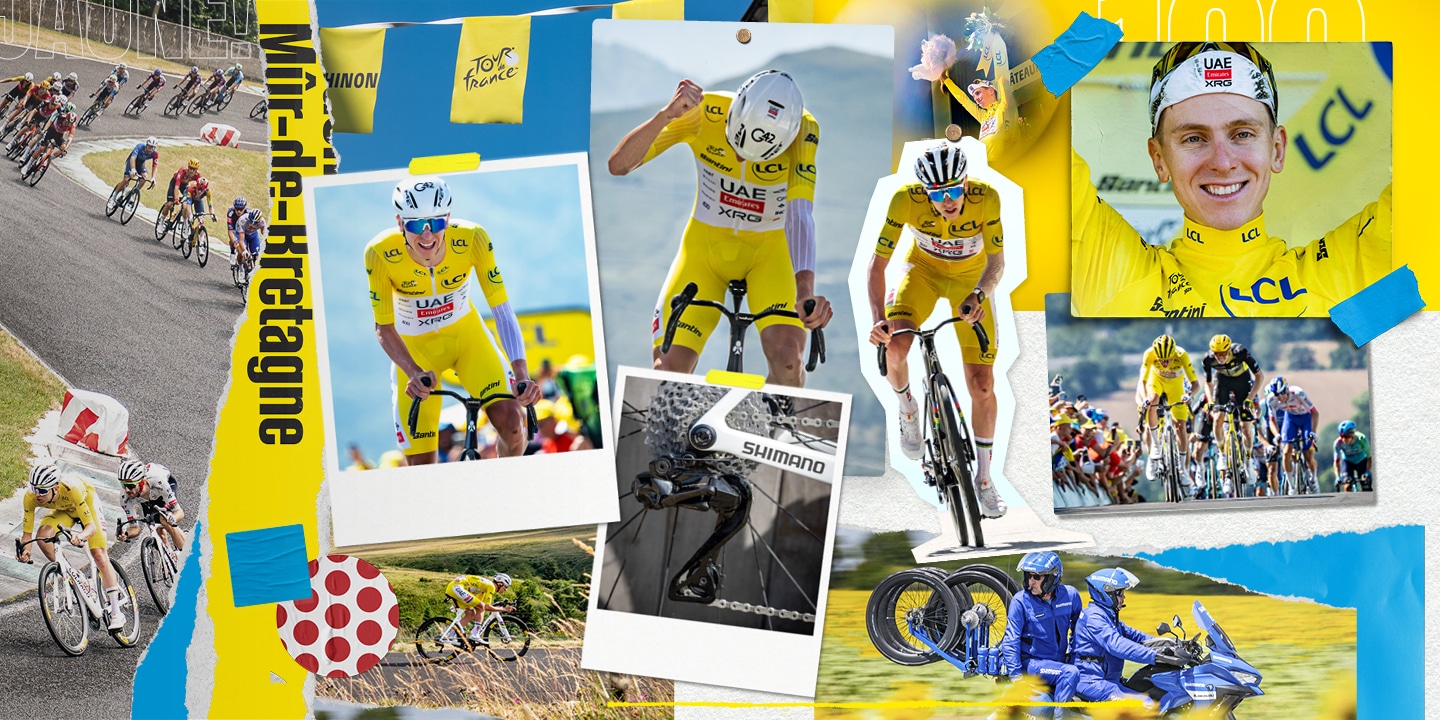
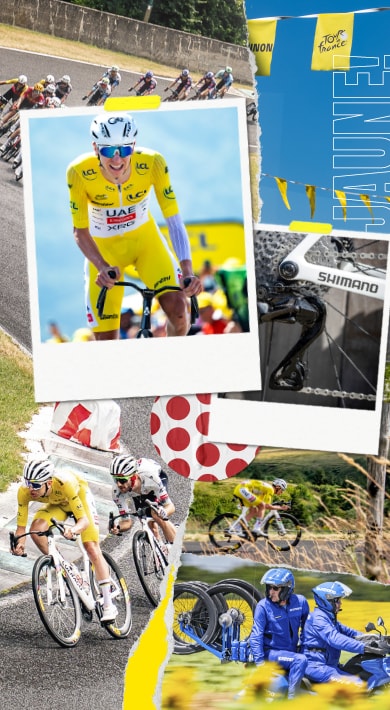
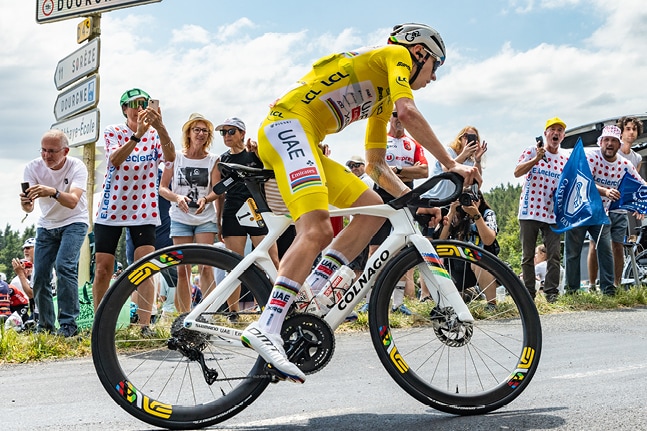
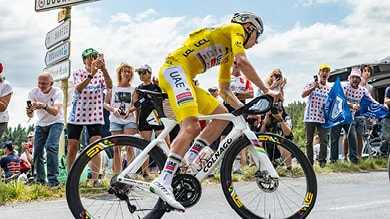
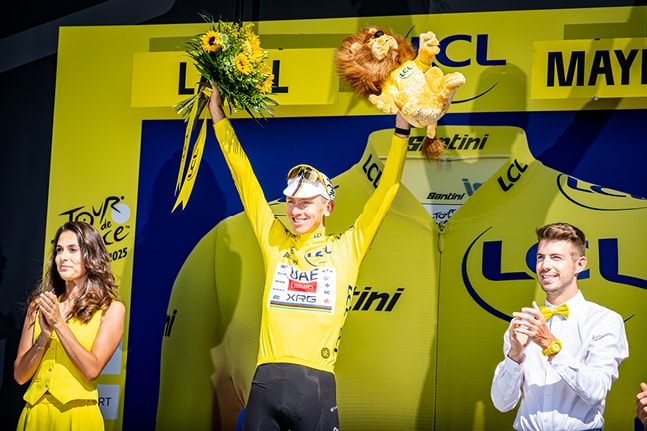
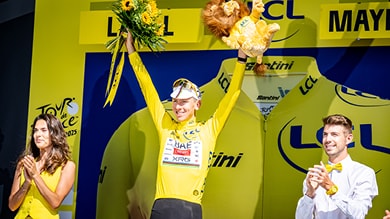
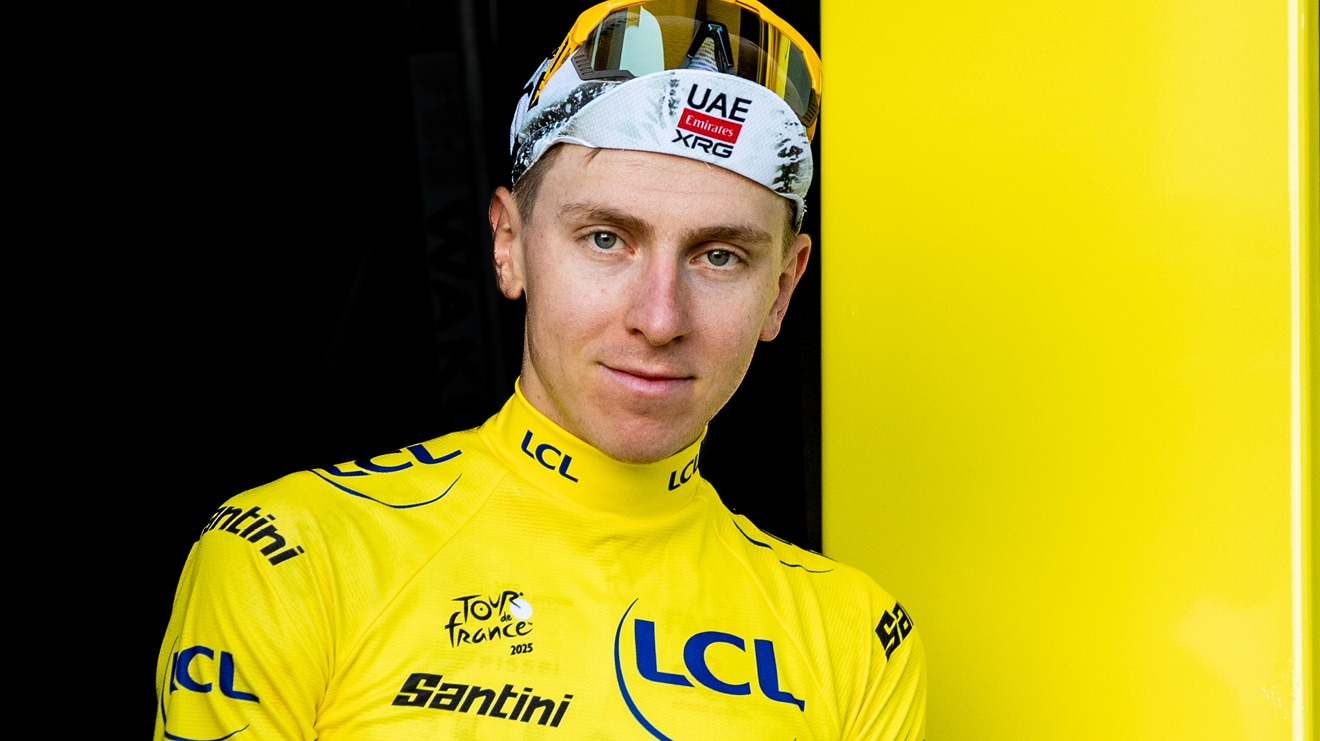
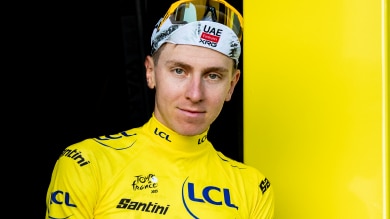
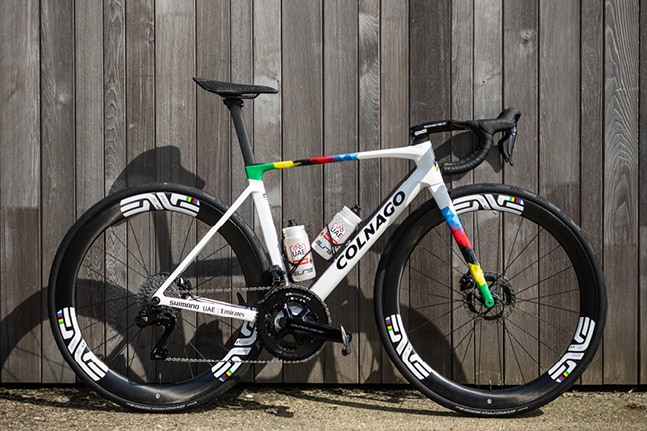
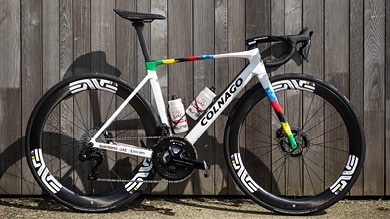
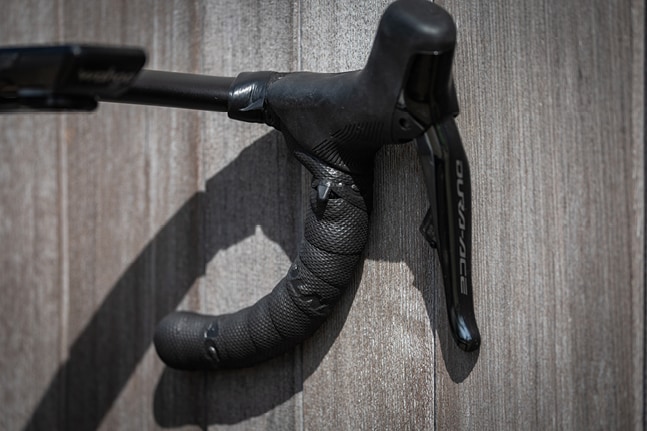
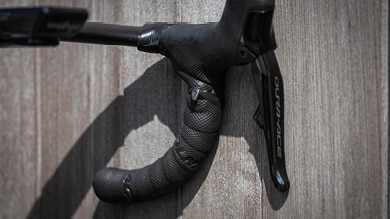
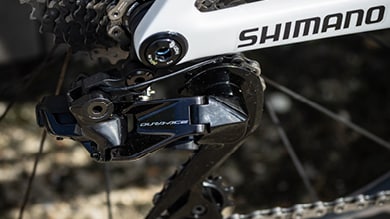
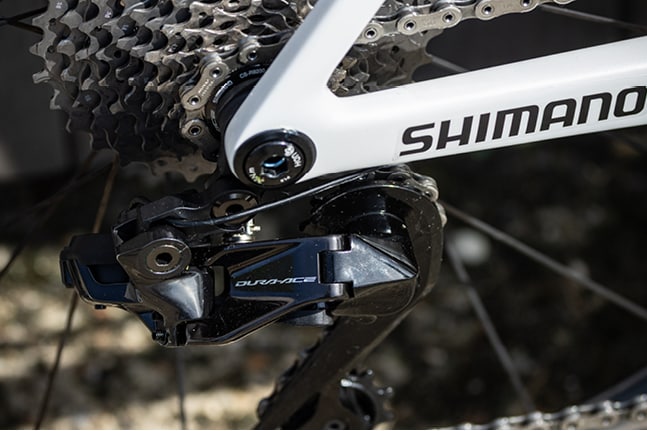
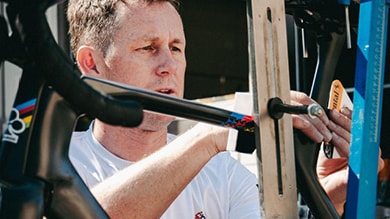
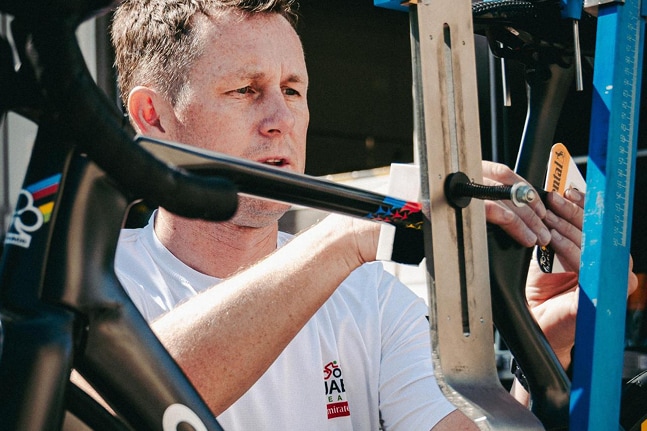
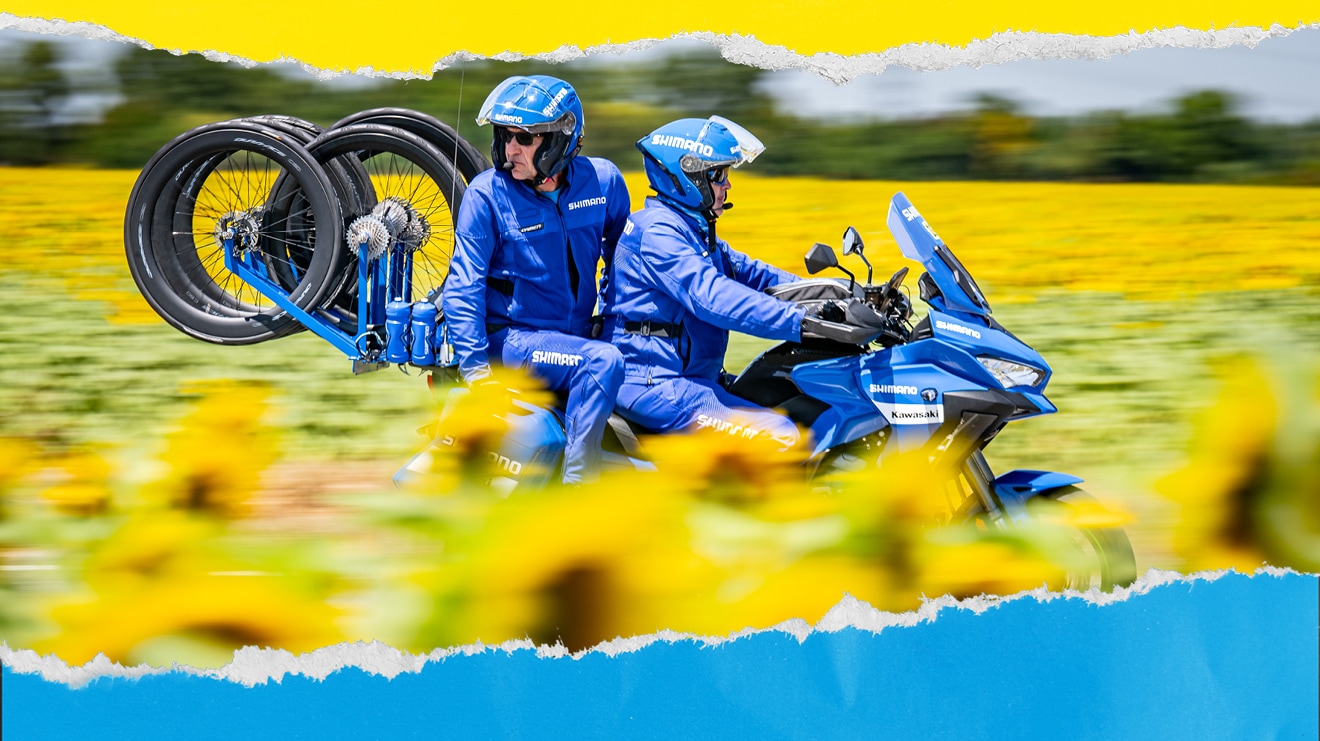
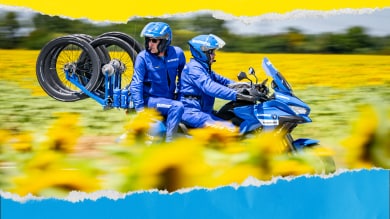
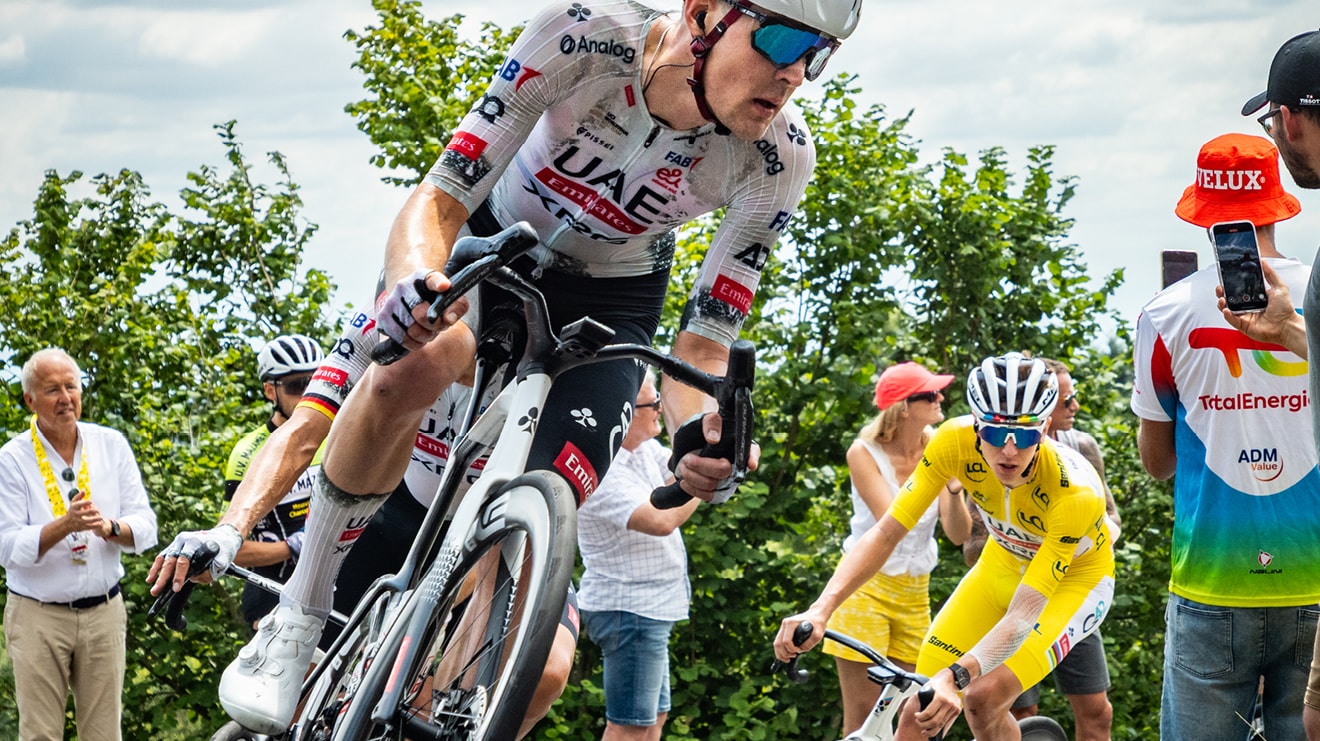
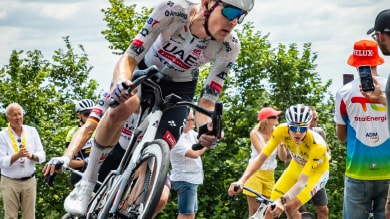
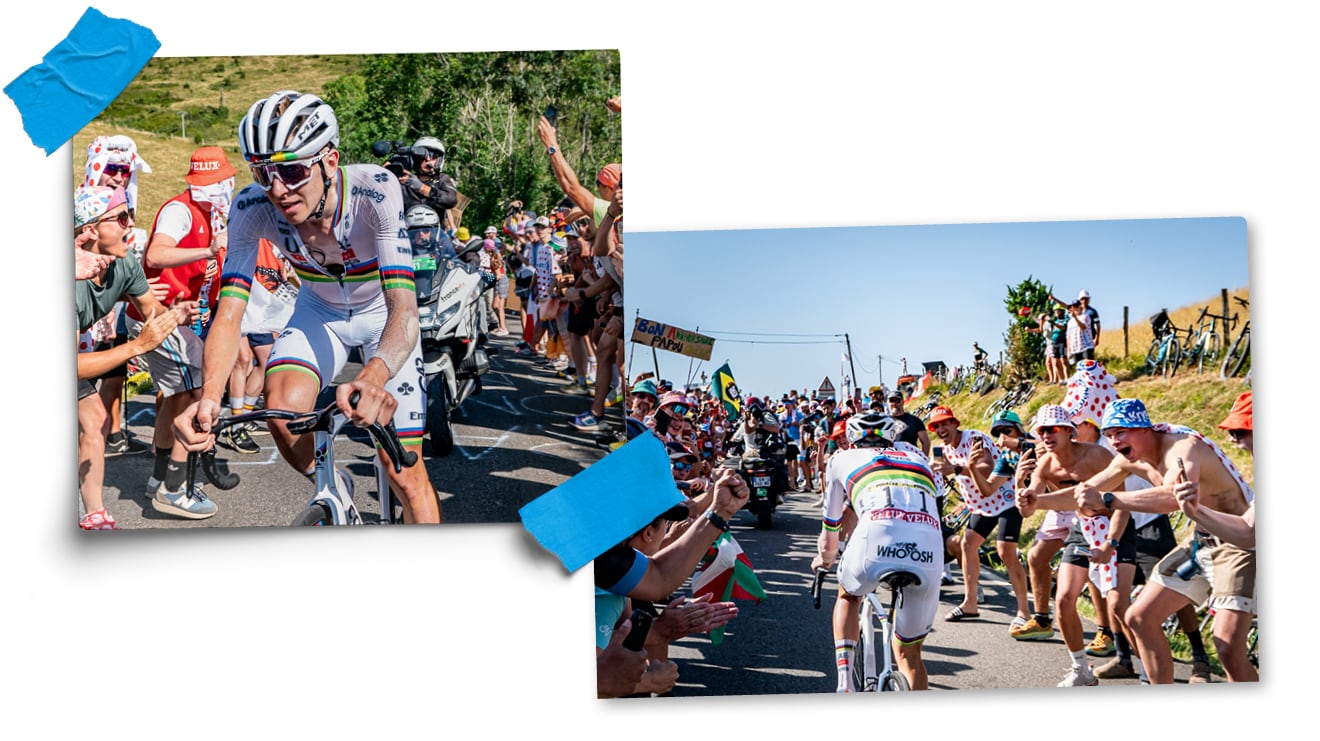
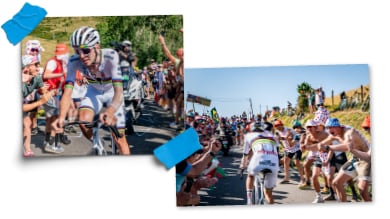
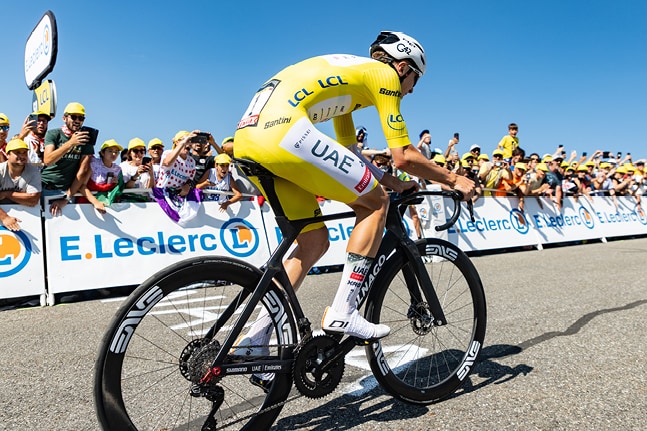
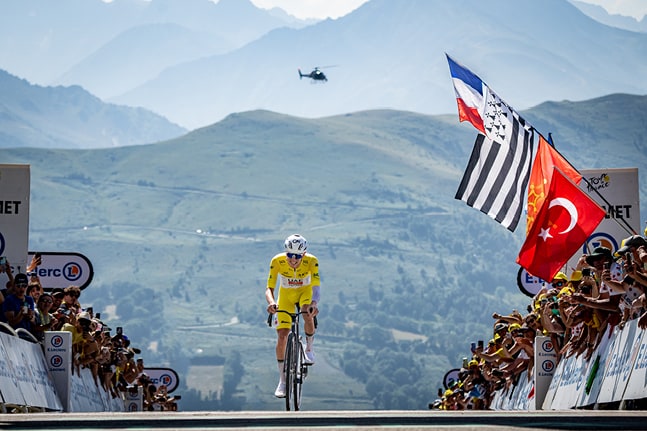
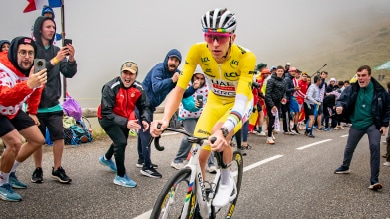
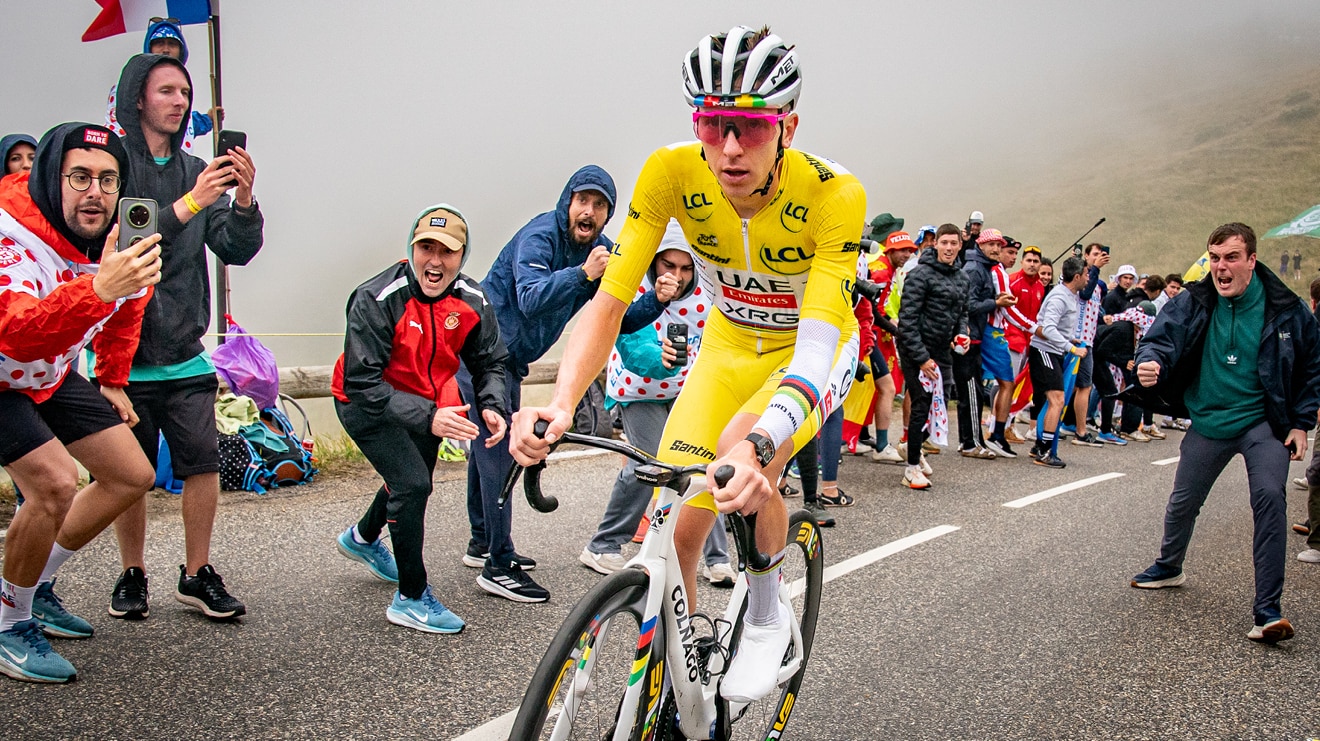
.jpg)
